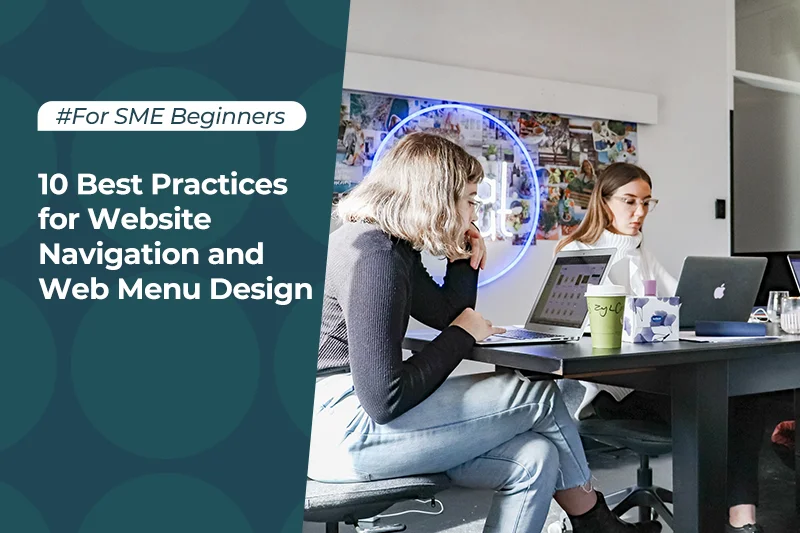What are B2B matchmaking tools and how to use them?

Business-to-business matchmaking (B2B matchmaking) is like a dating platform but for potential business partners — and with better success rates. According to a recent survey, 52% of B2B event organizers attribute the success of their events to B2B matchmaking. B2B matchmaking solves a crucial problem for event organizers — filling seats with the best possible audience.1
Powered by artificial intelligence (AI) and superior algorithm tools, B2B matchmaking creates remarkable connections that provide mutual benefits to the parties involved, strategically matching businesses that can meet each other's needs. An important scenario would be connecting small and medium-sized enterprises (SMEs) with suppliers or linking startups with venture capitalists. The benefits of B2B matchmaking outweigh those of conventional networking, making it distinct from networking in that sense.
In this article, we’ll discuss the different B2B matchmaking tools, their benefits, and how you can utilize them in organizing a successful B2B event.
Table of Contents
What are B2B matchmaking tools?
B2B matchmaking tools are software or applications that power strategic connections between businesses. These tools are often used for B2B events and offer added value to conventional networking. They have been B2B favorites for a while now as they ensure value for money for participants and ensure that the quality of attendees is in line with the target.
B2B matchmaking is mostly used for buyer-seller events to connect buyers with sellers of a product or products. However, B2B matchmaking is also used in startup-investor events, career fairs, segmented trade fairs, and innovative partnering events.
In B2B matchmaking, the matchmaker (event organizer) often automates matchmaking, which streamlines the registration and attendance processes for B2B events. Before looking through compatible profiles, you would need to complete the event registration form to build your profile.
Comparable profiles or businesses that can mutually benefit from each other would be accepted for the event, according to the matchmaker's automated profile approval system. If your profile is approved, you may then go through other businesses' profiles and schedule appointments or meetings before the event.
Popular B2B matchmaking tools include Brella, B2match, B2B2GO, Whova, and Eventtia. However, some social media applications pride themselves on being matchmaking tools, such as LinkedIn. In a similar vein, some eCommerce marketplaces like Alibaba.com offer matchmaking features to enhance relationships between buyers and sellers. B2B matchmaking is also expanding into the metaverse, providing businesses with immersive experiences with the help of AI/ML tools as well as 3D and virtual reality tools.
B2B matchmaking has tremendous benefits, both on the part of the organizers and that of the participating businesses.

7 benefits of using B2B matchmaking tools to organize a great B2B event
Essentially, B2B matchmaking boosts your chances of success by adding more assurance that the ideal businesses will connect. However, there are several other specific benefits of using B2B matchmaking tools to organize your B2B events.
1. Targeted profiling
B2B matchmaking tools concentrate on generating high-quality leads according to pre-specified profiles, which increases the chances of converting B2B events into a full-fledged, well-structured, segmented marketing campaign where there’s a perfect piece for every business’s puzzle. All of this is automated, and that’s the beauty of B2B matchmaking.
2. Quality control
A successful B2B event depends on the quality of the participants and the applicability of their products, services, and technologies to one another. B2B matching tools gatekeep to restrict attendance at events to only businesses who are in the target demographic, by so doing, managing the quality of both attendees and sponsors at the B2B event.
3. Increased efficiency
The efficiency of event planning is increased by the real-time updating of metrics and other event-related data. This allows B2B event organizers to put aside their lengthy Excel spreadsheets and concentrate on their participant-specific needs. In addition, the success of the events can easily be measured by the number of generated leads, which is often ensured from the onset by employing matchmaking tools — all of which would increase efficiency in the future.
4. Intelligent matchmaking
B2B matchmaking tools offer features that allow you to quickly identify the businesses you want to network with without having to go through a long list of attendee profiles. You can publicize what you're searching for or what you're offering via the B2B matchmaking tool, which facilitates an automatic connection between attendees.
5. Structured events
B2B matchmaking tools for events assist event organizers in structuring their events and concentrating on adding value for the participating companies. For example, making the attendee list known beforehand allows companies to schedule meetings with one another before the event, which alleviates the stress of sorting through hundreds of names on the day of the event.
6. Improved ROI
B2B matchmaking tools enhance the quality of B2B networking and thus lead to added benefits, including new collaborations and synergy between businesses, which inadvertently means increased leads and, thus, increased return on investment (ROI).
7. Lead generation
B2B matchmaking connects B2B marketers and their sales teams with their prospects or decision-makers at their prospects' companies. This leads to seamless lead generation post-event.
How to use B2B matchmaking tools to organize great events?
To successfully plan a B2B event, you need to utilize all the features and resources offered by B2B matchmaking tools. Here are some typical B2B matchmaking tool features and how you might use them to plan fantastic events.
1. B2B marketplace
This feature promotes the event attendees, displays their offerings, and lists the goods or services they are seeking. By including a detailed list of questions — data about the company's soft skills and its diversity and inclusion policy — on the registration form, you will be building a dynamic registration form. This would improve the value of the information available to participating businesses and simplify the process of setting up meetings.
2. Interactive agenda
The event agenda in B2B events is not just a document describing the event. It is interactive and also customizable and can be used to show an overview of meetings, control access to meetings, filter participants, and also display meeting schedules.
3. Organizer tools
B2B meetings follow similar schedules as regular networking gatherings, but it may be challenging to keep track of time because most of the networking takes place online. Organizer tools allow you to control the events, including the networking time blocks and the duration of meetings. This is crucial because, in addition to encouraging engagement, you also want businesses to speak with as many other businesses as they can and aid them in generating as many leads as possible.
4. Guest self-service
B2B matchmaking gives guests control over their networking experience by providing rich search features to assist them in finding the right business match. You may also allow the participating businesses to arrange meetings ahead of time. B2B marketers and salespeople are frequently quite delighted with this special feature, as they can adjust meetings in addition to sending them when there are new attendees on the guest list.
5. In-app messaging
B2B matchmaking tools provide in-app chat so that users can engage with one another. As an event organizer, you may also exploit this medium to deliver personalized messages to guests rather than a generic announcement.
6. Gatekeeping
The gatekeeping feature is the pinnacle of quality control for business-to-business events. It will prevent spam and misuse, ensuring that only qualified people can register for the event.
Ultimately, the success of all of these depends on the B2B matchmaking tool that is used. Some offer robust features for event organizers, while others simply offer basic features that are ideal for simple events. In all cases, businesses want to participate in an event where they are sure of getting value for their money. 91% of event organizers have affirmed that they measure the success of their events based on the satisfaction of the attendees.2
The satisfaction of participating companies, investors, and exhibitors and the success of the event will be guaranteed through the optimal use of the features mentioned above. In addition to these, adequate event planning would also be important in ensuring the event's success. While B2B matchmaking tools simplify event organizing and boost the likelihood of success, event organizers still need to consider the event's time to avoid overlaps with other similar events and ensure the event is appropriately marketed to draw in the intended guest demographic.

8 best B2B matchmaking tools
Matchmaking tools have features that make them ideal for different types of B2B events. Here are a few B2B matchmaking tools and their perks.
1. Brella
Brella offers AI-powered matchmaking functionalities and supports integrations with Hubspot, Eventbrite, gravity forms, Salesforce, and WooCommerce that ensure that your workflow is consistent with every event.
2. B2match
B2match prides itself as an event networking platform for matchmaking events that empower connections between businesses and is trusted by organizations all around the world. It also has a feature for special guests such as sponsors, exhibitors, and partners to give them more visibility. B2match also has data analytics and reporting tools for event organizers to give them more quantifiable data on the event activity and to help them plan for future events.
3. B2B2GO
B2B2GO affords event organizers 100% event customization and a visibility option for event sponsors. The intelligent matchmaking platform is used to facilitate networking during the B2B event. It also has reporting and analysis tools, as well as a meeting referral tool for customers.
4. Whova
Whova is an award-winning event management software with an attendee matchmaking feature, making it an all-in-one solution for B2B matchmaking and B2B events. Whova is free for event attendees to download, but event organizers have to pay.
5. Eventtia
Planning B2B events is now easier and more enjoyable than ever thanks to Eventtia. The business-to-business matchmaking software facilitates networking between companies during events. Eventtia matches businesses using an algorithm-based ranking system. Additionally, it provides customizable agenda features and space assignments so that attendees can benefit fully from the B2B event.
6. Eventact
Eventact offers self-service networking, which gives event participants more control over their profiles, their interests, and their meetings. They also offer private networking where the participants do not have to give away their contact details before they can chat in-app.
7. Hopin
Hopin is a very easy-to-use B2B matchmaking tool and is often preferred by small businesses. It is free and also offers AI-powered matchmaking with a high lead capture rate.
8. Airmeet
Airmeet is also a free event networking and matchmaking software This B2B matchmaking tool helps businesses monetize their events with ease while ensuring organic communication and interaction between B2B event participants.
Sell on Alibaba.com
Alibaba.com is one of the few B2B marketplaces that host online B2B matchmaking events for buyers and sellers on the platform. The free service helps buyers find reliable suppliers to buy from. The matchmaking events are usually categorized by industry or business category, such as the auto industry or home appliance category.
Over time, these matchmaking events have supported businesses to create mutual relationships with key industry players, learn about new products and technologies from hundreds of cutting-edge market participants, and locate trustworthy partners and direct suppliers to help their businesses thrive.
These B2B matchmaking events are only one of the few initiatives on Alibaba.com that promote buyer and seller success on the platform. Businesses are also equipped with a no-code storefront where they can display up to 50 products for free.
Alibaba.com is wholly dedicated to providing premium services to support business growth. To enjoy these and much more, open a seller account to become a seller.
References:
1. https://www.converve.com/event-networking-blog/18-success-factors-for-effective-matchmaking-at-business-events/
2. https://meetings.skift.com/event-budget/
Start your borderless business here
Tell us about your business and stay connected.
Keep up with the latest from Alibaba.com?
Subscribe to us, get free e-commerce tips, inspiration, and resources delivered directly to your inbox.
















